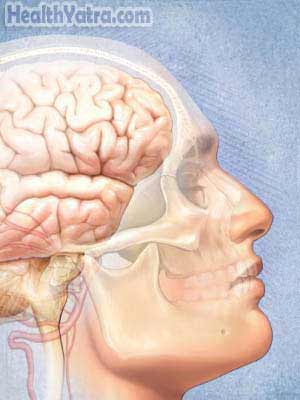Definition
Seasonal affective disorder (SAD) is a type of depression. It is associated with the seasonal changes in light. SAD most commonly occurs in late fall and lasts through the winter and into spring. SAD is more than feeling down, it interferes with normal daily functions during these times.
SAD often resolves itself when the seasons change, but treatment may help during the winter months.

Causes
The causes of SAD are not completely clear. Some factors that may play a role include:
- Reduced sunlight—This affects internal clocks, readjusting hormones and brain chemicals.
- Increase in melatonin production—Melatonin may cause symptoms of depression. This hormone is produced in higher amounts in the dark.
- Low seratonin—Seratonin is a brain chemical that is associated with well-being. In people with SAD, there may be a lack of seratonin in the brain.
Risk Factors
SAD is more common in women than in men, often appearing in young adulthood. People who live in northern latitudes also have an increased risk of developing SAD.
Symptoms
Symptoms appear and peak during the winter months. As spring and summer approach, symptoms disappear. Symptoms may include:
- Depressed mood, feelings of sadness
- Cravings for sweet or starchy foods
- Overeating
- Weight gain
- Lack of energy
- Oversleeping or insomnia
- Fatigue
- Irritability
- Social withdrawal
- Difficulty concentrating
- Decreased sexual desire
Diagnosis
The doctor will ask about your symptoms and medical history. A physical and psychological exam will be done.
A diagnosis of SAD will only be made if you have some of the symptoms above and:
- Your symptoms have occurred annually for at least two years
- You have complete relief from symptoms during the summer months
Treatment
Light Therapy
Light therapy provides a special type of lighting to trick your body into thinking it is summer. Therapy includes sitting a few feet away from an ultra-bright light for a certain amount of time each day, usually in the morning. You will be able to read or work during the therapy, as your eyes will remain open. Treatment usually lasts about 30 minutes each day.
There is some evidence that light therapy may be as effective as antidepressant therapy, but with fewer side effects.
Tanning beds are not recommended as a source of light therapy. They give off ultraviolet light, which can increase the risk of cancer. They also have not been proven effective for treating SAD.
Many people find that getting outdoors for a walk each day is also helpful.
Antidepressant Medications
Your doctor may prescribe antidepressant medications or supplements.
Psychotherapy
Therapists can help you learn ways of managing stress and the symptoms of SAD.
Prevention
If you have SAD each year, your doctor may make suggesting to help prevent the symptoms from coming. For example, certain antidepressants may be used to prevent SAD symptoms from coming if started before autumn.
